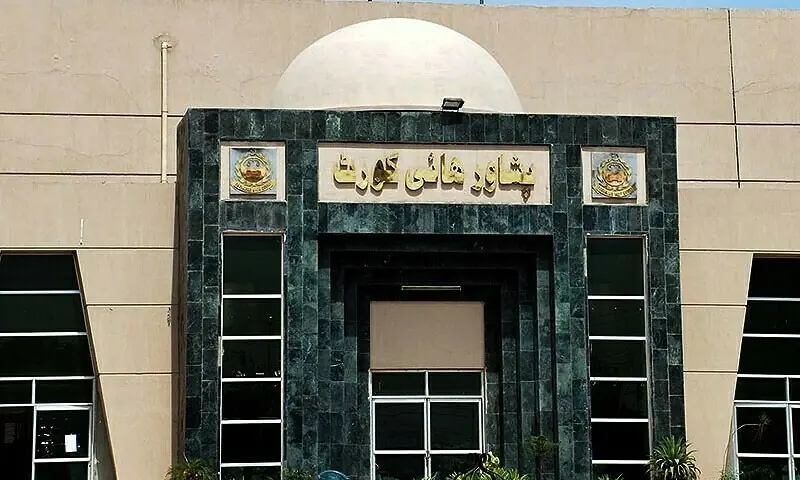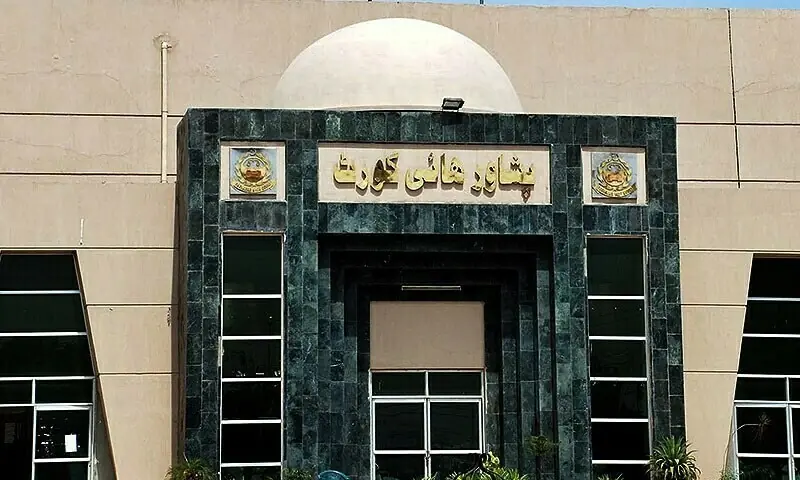Peshawar: Peshawar High Court declares unconstitutional and has no legal effect Amendment Production Local government laws In 2022, the powers of Tehsil and the heads of the City local council were cut and the resumption of the provisions that were previously available were ordered.
The bench consistency of Justice Syed Arshad Ali and Justice Farah Jamshed also beat Khyber Pakhtunkwa City/Tehsil Local Government Business Rules, that is, in 2022, there is no state power within the scope of their claim to be intended to define, limit or control the powers of elected officials.
The bench ruled in its 18-page detailed judgment: “The original statutory provisions of Sections 23A and 25A are hereby restored, as they were established before the amendment to be hit.”
The Khyber Pakhtunkhwa government directed to ensure that the powers and functions of elected local representatives were exercised in accordance with the Constitution.
The bench also restores pre-order provisions of the bill
The judge announced a brief order in May 2025 to accept five identical petitions from the heads of different Tehsil and city local councils to oppose the legal amendment passed by the KP Local Government (Amendment) law in 2022.
Petitioners include the mayor of Mardan City Himayatullah Mayor, Peshawar Mayor Haji Zubair and several other KP Local Government (Amendment) Act, which requested the court to declare an unconstitutional KP Local Government (Amendment) Act of 2022, which was enacted by the previous Pakistan Teheek In-Ininthe. Provincial Government in 2022.
The petitioner was represented by advocate Babar Khan Yousafzai, which contained the KP Local Government Act of 2013, apparently played the power and function of the mayor of the city council and the chairman of Tehsil, as well as the village and neighborhood councils in the province. He said the adverse changes in the law removed these provisions and declared that the heads of local agencies would exercise and enforce the powers and functions set out in the rules.
In a judgment written by Farah Jamshed, the judge ruled that Sections 23A and 25A of the Act and related rules violate the express mandate of Section 140A that requires political, administrative and financial power to carry out political, administrative and financial rights to elected local governments. By making their power dependent on the administrators, compromised the autonomy of elected representatives; undermined democratic accountability and citizen participation in local areas; and violated the principles of decentralization, which is crucial for responsive and participatory governance.
The bench observed that the initially formulated Articles 23A and 25A clearly define the powers and functions of the Chairman and Mayor at the Tehsil level. However, the amendments proposed through the 2022 Amendment Act have significantly changed the framework by bringing the exercise of these powers and functions to the 2022 rules.
The substitute noted: “This change effectively attributes the authority of subordinates’ elected representatives to administrative rules, thus undermining their legal autonomy.”
Speaking about the different constitutional provisions related to local governments, the judge pointed out that Article 140-A, in particular, its requirement for decentralization of electronic political, administrative and financial authority. Article 32 complements it by emphasizing the obligations of the State to encourage such institutions in a fully representative manner; and Article 17 strengthens the framework by ensuring the right to establish associations and participate in the political process.
The debate about another advocate, that Rules 5 and 6 of the 2022 Rules are sufficient to define the functions and powers of the Chairman and Mayor to address the petitioner’s dissatisfaction, the bench observed: “These rules may replicate the content of power in the lawsuit in 2013, rather than legislative actions, rather than legislative actions, rather than rulers.
“The power of elected representatives is therefore no longer deeply ingrained in the constitution or statutory terms, but is subject to the rules set by the provincial government under Article 5(4) of the Act.”
The judge ruled: “This shift from legislative delegation to enforcement of discretion constitutes a significant difference from the constitutional requirements of decentralization. Rules 5 and 6, despite administration, effectively reconstituting statutory pets for conditional damage to institutional independence.”
The bench observed that Sections 23A and 25A (before the 2022 Amendment) set out the functions of the Chairman and Mayor, respectively, including several key responsibilities.
“After the amendment to 2022, Sections 23A and 25A replace the language of the ‘Chairman/Mayor… such powers and functions shall be exercised and performed as provided by the Rules.
The bench notes that under Article 3 of the Act, the hero is a supervisory role – not a representative role, but Article 23A now allows the province to define, narrow or revoke the authority of the chairman and mayor through rules rather than legislation.
“This distinct structural shift contradicts the task of decentralizing political, administrative and financial authority in Article 140A. Therefore, while Section 3 is suitable for necessary provincial coordination, it does not allocate, reduce or define the core powers conferred by Section 23A on the elected body,” the seat ruled. ”
Posted at Dawn on September 25, 2025



